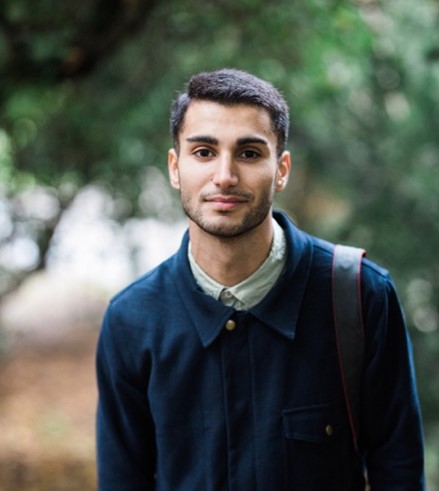Find a CBT Therapist
Search through our directory of local clinicians.
Omid V. Ebrahimi

Mentor Spotlight
The ABCT Academic Training and Education Standards committee annually solicits nominations for the “Spotlight on a Mentor” recognition to highlight the diversity of excellent mentors within the membership ranks of ABCT. Its goal is to spotlight promising early-career and well-established mentors across all levels of academic rank, areas of specialization, and types of institution. We asked the four 2022 winners to share some wisdom related to their own influential mentors, their mentorship philosophy, and advice for mentees and aspiring mentors. Learn more below, and you can find more information online: ABCT Mentor Spotlights
Omid V. Ebrahimi is a second year double-degree PhD student at the University of Oslo, parallelly engaged in a clinical specialization at Modum Bad Psychiatric Hospital. He holds his degree in clinical psychology from the University of Bergen, partially undertaken at University of California Berkeley and The University of Hong Kong. Omid researches the temporal dynamics of depression to identify the boundaries and processes tied to transitions between non-diagnostic and diagnostic states. He is also engaged in the longitudinal modeling of population mental health and preventive health behaviors during infectious disease outbreaks. Omid’s work has been recognized through several awards, including the International Council of Psychologist’s Early Career Research Award (2022), Gordon Johnsen’s Memorial Lecture Recognition (2021), and the Research Dissemination Award (2020) at the Department of Psychology (University of Oslo).
Response:
I view the opportunity to mentor students as a privilege and one of the most pivotal roles in academia given its key part in shaping the future generation of researchers and helping our science take its incremental steps forward.
When it comes to mentorship style, I am greatly indebted to the wonderful mentors that I’ve had throughout the years, all of whom have been critical for my development and helped me grow as a person and scientist. The thank you-list is long, and some important role models for me in this area in recent years include Denny Borsboom, Andrea Cipriani, Sacha Epskamp, Cecilia Cheng, Asle Hoffart, Sverre Johnson, and Dan Bauer. Borrowing from their qualities, I aspire to teach transparency and critical thinking coupled with empathy and genuine curiosity.
I’ve been fortunate to get the opportunity to mentor students from an early stage in my career. This has the advantage that many of the challenges that my mentees experience are those I have recently encountered myself. This proximity aids my understanding and helps me remember the roadblocks I faced in similar situations and how I learned to address these obstacles from my own mentors. I love teaching and value spending enough time with students to build their knowledge in a stepwise fashion, as this is how I best have learned myself.
As a clinical psychologist who takes individual differences seriously, I appreciate exploring the unique strengths and needs of each mentee. I try to explain the logic and rationale for my suggestions to facilitate critical thinking and empower students to make their own choices about the proposed changes and in their future work. I also aspire to model the importance of knowing one’s limitations and seeking advice from other experts when needed, informing my mentees about what I know well and less of from the get-go in order to give them the opportunity to make the choices that helps them tailor their needs.
Notably, being a first-generation immigrant and someone coming from a background with limited resources and knowledge about academia upon starting my career, I understand the crucial role of (lack of) information in academia. This motivates me to strive to help my mentees with everything I know about both explicit and less explicit norms and resources, ultimately hoping to combat gatekeeping and increase intellectual mobility. Hard work is of course an important ingredient to growth, but as an optimist, I am a firm believer that everyone can thrive if they are given the right opportunities and are matched with a mentor that fits their unique needs.
Mentorship is a lifelong skill that takes time to build and something that we must actively practice. Having this in mind while also seeking feedback from students and colleagues to identify areas you wish to improve on as a mentor is helpful. The saying goes that it takes a village to raise a child. Similarly, it takes many mentors to raise a mentor. Don’t be afraid to reach out and ask role models you value for their tips on how to best facilitate growth and support students, and be patient with yourself. Your time will come.
My Account Info
Manage your Membership information, email preferences, and more.
Journals
Membership in ABCT grants you access to three journals.
Convention
We are now accepting Abstract submissions for Continuing Education Ticketed Sessions at the 2024 ABCT Convention in Philadelphia, PA.
My Account Info
Manage your Membership information, email preferences, and more.
Journals
Membership in ABCT grants you access to three journals.
Convention
We are now accepting Abstract submissions for Continuing Education Ticketed Sessions at the 2024 ABCT Convention in Philadelphia, PA.
